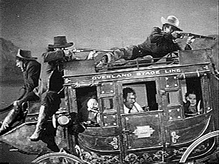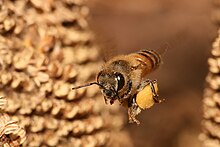
I'm a curious person–I think that's part of what it takes to be an author. I write about people from all over, as you may or may not know.
One thing I've learned traveling hither and yon, making friends in distant places and writing all these stories–every place you go has sayings or idioms that are unique to that area. That's what I thought I'd do today, with my Thursday 13. I figured that I'd pick out thirteen different sayings or idioms that I've used in books–or plan to use, as far as that goes. Some you'll recognize, some you might not, and some I bet you've used more than once. I've certainly heard most of these enough that I ought to know where they came from…but I didn't know, in most cases.
So here goes:
i got that from organize.com–it just seemd right : )
1) Bob's your uncle–I've read different things about this phrase. It's bandied around quite a bit. Wikipedia says that it originates from Frederick Sleigh Roberts, 1st Earl of Roberts. He was said to be beloved by his men and was very successful in battle. His men apparently called him Uncle Bobs. Historians suggest that his men used the phrase, "Bob's your Uncle," to promote higher morale among the troops and assure them that things would be well.
Most people credit the phrase to a more recent event in 1887, when the British Prime Minister of the time, Robert Cecil, Lord Salisbury, chose to promote his nephew, Arthur Balfour, to the elevated position of Chief Secretary for Ireland. Prior to that, Balfour showed no interest in politics.
After that, the phrase Bob's your uncle became popular when suggesting anything would be simple with a sure result–as sure as if" Bob's your uncle."
2) Basket case–I really didn't expect this one to turn out like it did. Originally, the meaning comes from the US military right after WWI. It was pretty odd–Basket case was a phrase to describe something that authorities say DIDN'T exist at the time, or a condition, anyway.
This bulletin was issued by the U.S. Command on Public Information in March 1919, on behalf of Major General M. W. Ireland, the U.S. Surgeon General:
"The Surgeon General of the Army … denies … that there is any foundation for the stories that have been circulated … of the existence of 'basket cases' in our hospitals."
This bulletin was reported on in many U.S. newspapers at the time. They also defined the term 'basket case'; for example, from the New York paper The Syracuse Herald, March 1919:
"By 'basket case' is meant a soldier who has lost both arms and legs and therefore must be carried in a basket.
~
.
3) Cut to the chase— The first reference to it dates back to that era, just after the first 'talkie' – The Jazz Singer, 1927. It is a script direction from Joseph Patrick McEvoy's novel Hollywood Girl, 1929:
"Jannings escapes… Cut to chase."
The wide usage of this became more prevalent in the 1940s screenwriting when the phrase, "When in doubt, cut to the chase," became a common theme.
The first use of it outside of the movies or theater is from the New England newspaper The Berkshire Evening Eagle, February 1947:
"Let's cut to the chase. There will be no tax relief this year."
.
4) Safe as houses–a safe bet– safe as houses originally meant something was certain to happen. The phrases, As safe as houses, was first recorded in 1859. John Camden Hotten's A Slang Dictionary gives an explanation of its origin, saying that the meaning may have arisen "when the railway bubbles began to burst and speculation again favoured houses."
.
~
5 ) Bee's Knees–This is primarily a British rhyme or saying, and it could be from the idea that bees carry pollen back to the hive on their legs. But it probably isn't. Most citations suggest that it became popular as a phrase meaning something good in the 1920s. There were all sorts of popular phrases, like, "the cat's whiskers."
6 ) Jump the gun–this little idiom began as "beat the gun" or "beat the pistol." It began as a sports-related phrase. But later, it evolved. The first cited use of the phrase outside of sports is in 1921– The Iowa Homestead, November 1921:
"Give the pigs a good start; jump the gun, so to speak, and get them on a grain ration before weaning time."
7 ) Loose Cannon– Between the late 17th century and the early 20th century, wooden warships carried cannons as their primary offensive weapons. They had to be mounted on wheels to pull them around and put them where they were needed, and to absorb the recoil when they blasted, but were secured with rope when in use. Every now and then, a cannon might break loose. The result is just what you'd expect when a cannon goes out of control during a conflict at sea.
The earliest figurative use of 'loose cannon' in print that I can find is from The Galveston Daily News, December 1889:
The negro vote in the south is a unit now mainly because it is opposed by the combined white vote. It would in no event become, as Mr. Grady once said, "a loose cannon in a storm-tossed ship."
8 ) As dead as a doornail–This is old – at least 14th century. There's a reference to it in print in 1350:
"For but ich haue bote of mi bale I am ded as dorenail."
In fact, Shakespeare used it in King Henry VI. But, The Morris Dictionary of Word and Phrase Origins, suggests that the phrase could have come from a carpentry. "If you hammer a nail through a piece of timber and then flatten the end over on the inside so it can’t be removed again (a technique called clinching), the nail is said to be dead, because you can’t use it again."
~
9 ) Face the music — The prevailing theory about this phrase says it comes from the British military. When someone was court marshaled, there would be a military drum squad playing, hence face the music. The term "drummed out of the military" came from this practice.
Another possibility is from England-At one time, though nobility and impoverished parishners shared the same churches, the nobles sat higher in the church, while the peasants sat in the lower, west gallery. The nobles often spent Sunday mornings facing the west gallery and listening as the poor folk sang songs that were critical of them.
10 ) Knock on wood–Older religions held that trees and plants had spirits living within. It was considered courtesy or good luck to let the spirits know that you were there by tapping or knocking on the wood, thus granting you good tidings from them.
Another theory is that the phrase originated during the Middle Ages when peddlers claimed to have pieces of the Holy Rood or Cross on which Jesus was crucified. To touch one of these was supposed to bring good luck hence touch wood for good luck.
11 ) Once in a blue moon –Two full moons in the same month are generally rare, but do happen. A second full moon in any month is called a blue moon. This is apparently started because the Maine Farmers' Almanac noted the date of first moon in red print, and the second moon in blue print.
12 ) Rule of thumb–This comes from pretty much just measuring things with your thumb. It works for measuring on the fly…most of the time. Still, most old English measures of distance were based on the body measurements of the king — the length of the foot, inch (thumb tip to first knuckle), cubit (elbow-to-fingertip), and yard (nose-to-fingertip).
13 ) Peeping Tom–this phrase came to use from the infamous ride of Lady Godiva through the streets of Coventry. She made the ride through town with only her hair to cover her as a protest to the out-of-control taxation by her husband, the Lord of Coventry.
The story goes that, before her ride, she asked the townspeople to stay inside and close the shutters. Legend has it that, while he kept his shutters closed, an old tailor named Tom couldn't help himself and drilled a hole in the wooden shutters to watch her pass by.
This little tidbit about Tom seems to be a latter-day add on, credited to William Camden, 600 years after the ride. The name 'Peeping Tom' is first recorded in the Coventry city accounts in 1773, recording a new wig and paint for the effigy of Tom the Tailor (which clearly must have existed for some time prior to that).
The first record that alludes to his dubious habits is in Grose's Classical Dictionary of the Vulgar Tongue, 1796:
"Peeping Tom, a nick name for a curious prying fellow."
Later in the day, I'll stop by and tell you the name of some of the books I've used these little sayings in. I'll choose a winner from whomever posts the name of one of my books with the corresponding phrase or idiom in it. If there are enough responses, I'll pick two winners.
see you in a bit!
(most of these pictures came from Wikipedia–except the first one–from organize.com and one from phrase finder)
The purpose of the meme is to get to know everyone who participates a little bit better every Thursday. Visiting fellow Thirteeners is encouraged! If you participate, leave the link to your Thirteen in others’ comments. It’s easy, and fun! Trackbacks, pings, comment links accepted!








0 COMMENTS
Jeri
13 years agoHahaha.. this is very fascinating..
I for one apparently had been using a couple of them in the wrong sense especially the "Basket case" one.. LoL..
Thanks for the delightful info..
Julie Eberhart Paninter
13 years agoAlways interesting to get to the heart of the matter. Good job. Kudos to you.
J.J. Massa
13 years ago AUTHORThanks! 🙂 Both of you. Things like idioms and sayings just facinate me. I really could have gone on…but the title is Thursday Thirteen, so what could I do?